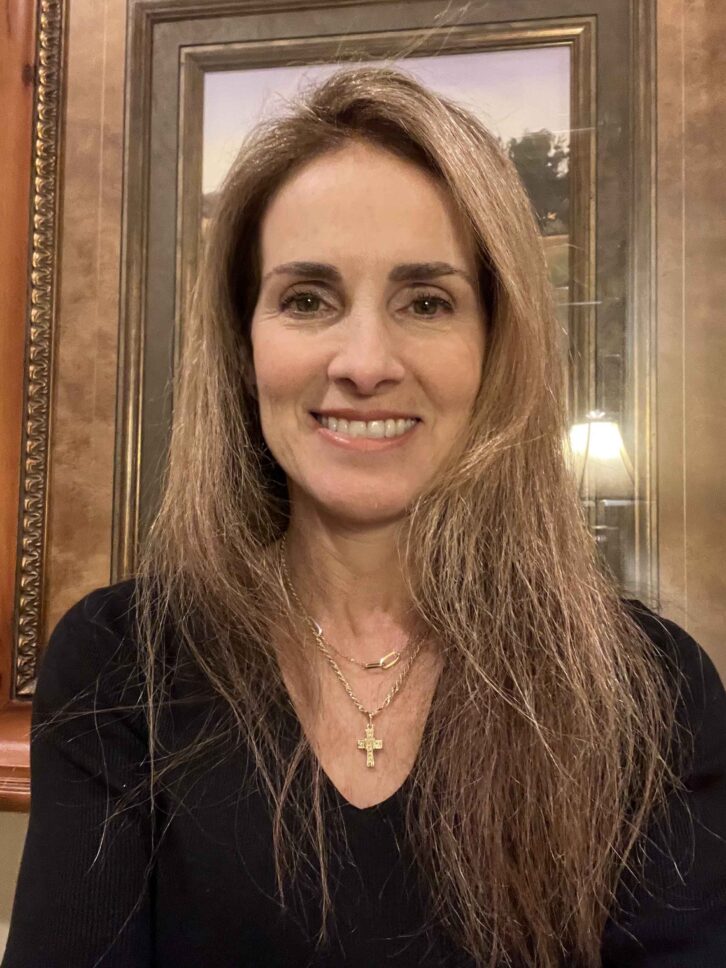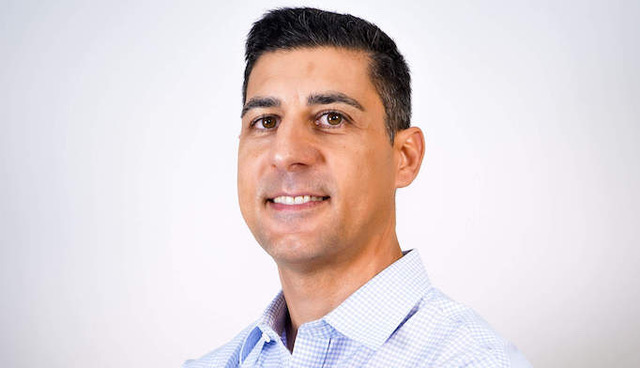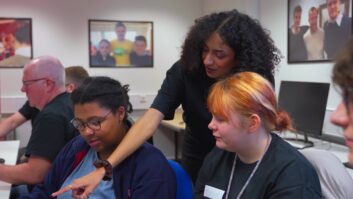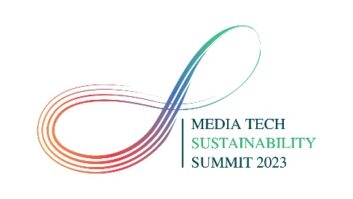In the third of TVBEurope’s special series of features looking at five key drivers of change within the media tech industry, we focus on diversity.
TVBEurope invited a number of vendors to share their thoughts with us, covering areas such as their diversity targets, success stories and areas that they believe the industry should focus on.
Tell us about your organisation’s diversity targets/initiatives
Bryan Castle, senior director of global learning partnerships, Avid
Formed in 2021, the Avid Learning Collective programme gifts professional media creation technologies, training and certification to not-for-profit educational organisations that have proven to inspire, engage and activate creators in underrepresented communities. Every year, the ALC welcomes six additional educational organisations and initiatives that demonstrate the intention and ability to influence the current state of diversity, equity and inclusion through student advancement. These educational organisations and initiatives are reaching disadvantaged communities both locally and globally, providing potentially life-changing support and opportunities for people all around the world. The funded three-year membership provided by the Avid Learning Collective programme delivers all the tools, training and resources to give people the chance to realise their talent, develop their skills, access vital industry knowledge and gain hands-on experience that other, more fortunate, groups of people might gain during their education or careers.
Suzana Brady, SVP worldwide sales and marketing, Cobalt Digital

Cobalt values diversity, considers it an asset and strives to maintain a welcoming environment that respects individuals for their words and actions. At Cobalt we aim to hire the right person for the right job based on their credentials and goals; any other aspect of their background or circumstance of their personal history is irrelevant.
Our team of professionals come from various walks of life and diverse regions in the world and bring productivity and creativity to all positions of the company. At Cobalt our company culture thrives and grows because we have a team of professionals that bring authenticity to the workplace and never have to worry about betraying their principles.
Geoff Danheiser, chief of people, Perifery
As a company with a workforce that spans ten countries, in Q1 2022, DataCore (and Perifery, a Division of DataCore) launched its first Global Diversity, Inclusion, and Belonging Philosophy (DIBs) which states, “It is our mission to respect, support, and care for one another by creating and fostering an environment where everyone is and feels valued and appreciated for who they are as well as what they bring to the table”. We truly recognise that what makes us different is also what makes us shine, and it is that uniqueness that allows us to be even more innovative and productive so we can continue striving to deliver the best products and services to our customers!
We believe that the more we collaborate, value, and embrace our differences, the closer we get to living in a truly diverse and inclusive workplace.
One diversity target that we focus on heavily is the percentage of females that make up our workforce. Currently, females represent 21 per cent of our employee base and we have a goal to be at 24 per cent by 2025.
Danna Mann, director of marketing, TAG Video Systems
“We have something to learn from everyone.”
That statement appears on our website and we truly believe it, TAG employees come in all different shapes and sizes, genders, ages, and nationalities – regardless if they are based in our Tel Aviv headquarters or work remotely from India, the US, Canada, the UK or any other corner of the world. Diversity is sewn into our fabric. It is part of our personality, and the confluence of different backgrounds, different viewpoints and different approaches are always considered, applied to the same goals, and are largely responsible for our success on the world stage.
This philosophy extends to our global customers who educate us and remind us daily that not every solution solves every problem for every organisation. Corporate cultures and regional markets have their own personalities with differing goals and requirements. We are extremely dedicated to providing solutions that suite specific needs.
What success stories can you share about the effectiveness of existing initiatives?
Phillip Farinha, director of people and culture, Accedo

We have started to see an increase in the number of women overall being employed at Accedo.
We now have a process in place to ensure gender pay gaps ensure equality in pay for those in the same position.
We have begun the work to create a global career framework which provides another fair and consistent platform to externally and internally benchmark our jobs to ensure we are achieving equal pay for equal work.
Caroline Meyer, CHRO, Bedrock
One of our notable success stories involves sponsoring the “Data Asperger” training programme at Grenoble Ecole de Management. Through this initiative, we recruited a student with Asperger’s syndrome on a work-study basis, and their exceptional skills led us to offer them a permanent contract. This accomplishment demonstrates the effectiveness of our program in providing equal opportunities and empowering individuals with unique abilities. We are committed to fostering inclusivity and diversity within our organisation through similar initiatives that make a positive social impact.
What are the most important things the industry as a whole needs to focus on?
Bryan Castle, Avid
Progress comes from a focus on partnering with educational organisations and initiatives to provide vital introductions and training for disadvantaged and underrepresented communities. Not everyone grows up surrounded by the same level of encouragement, advantages, resources or opportunities to showcase their talents to any industry they want to be a part of. Some are presented with greater challenges from very early on in life, with background and identity majorly impacting someone’s awareness of, or ability to enter, the media and entertainment industry.
Suzana Brady, Cobalt Digital
Across any industry, not just ours, diversity needs to be embraced and everyone needs to be treated with respect. Each employee should be encouraged to contribute thoughts and ideas that will help the Company achieve its objectives, and encouraged to participate in activities that will support their own growth. Each manager should spend time with employees at all levels. Judgment and criticism should be suppressed, and management should promote empathy and openness throughout all groups. In the broadcast industry from content creation and processing all the way to delivery, ethics and authentic inclusive representation are always key factors for achieving results and success.
Caroline Meyer, Bedrock
Achieving gender balance is a key priority for the industry as a whole. It requires addressing disparities, promoting equal representation, ensuring pay equity, fostering an inclusive workplace culture, and raising awareness about biases. By focusing on gender balance, the industry can create a more equitable and diverse environment that unleashes the full potential of all individuals.
Geoff Danheiser, Perifery

I believe there are three major themes that the broadcasting and software industry needs to focus on:
Representation: The industry should focus on increasing representation of underrepresented groups, such as women, racial and ethnic minorities, and individuals with disabilities. Efforts should be made to ensure diverse hiring practices, equal opportunities for career advancement, and inclusive work environments.
Inclusive Culture: Building an inclusive culture is crucial. This involves fostering an environment where all employees feel valued, respected, and empowered to contribute their unique perspectives and ideas. It requires addressing biases, promoting open communication, and providing diversity and inclusion training.
Leadership and Mentorship: Developing diverse leadership teams and providing mentorship opportunities for underrepresented groups is vital. Having diverse leaders not only serves as role models but also helps in driving inclusive policies, influencing company culture, and making decisions that support diversity and inclusion.







